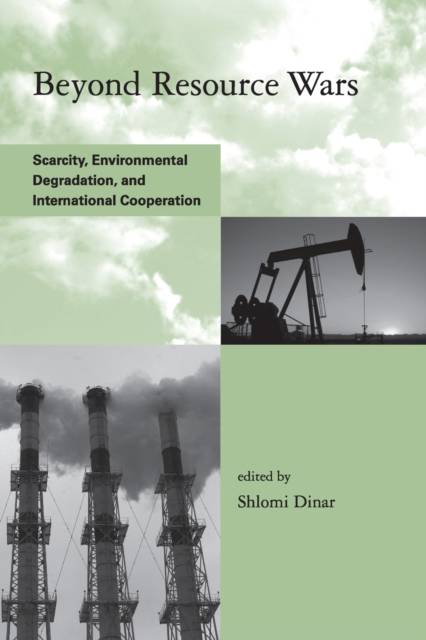
- Retrait gratuit dans votre magasin Club
- 7.000.000 titres dans notre catalogue
- Payer en toute sécurité
- Toujours un magasin près de chez vous
- Retrait gratuit dans votre magasin Club
- 7.000.0000 titres dans notre catalogue
- Payer en toute sécurité
- Toujours un magasin près de chez vous
Beyond Resource Wars
Scarcity, Environmental Degradation, and International Cooperation
Description
Common wisdom holds that the earth's dwindling natural resources and increasing environmental degradation will inevitably lead to inter-state conflict, and possibly even set off "resource wars." Many scholars and policymakers have considered the environmental roots of violent conflict and instability, but little attention has been paid to the idea that scarcity and degradation may actually play a role in fostering inter-state cooperation.
Beyond Resource Wars fills this gap, offering a different perspective on the links between environmental problems and inter-state conflict. Although the contributors do not deny that resource scarcity and environmental degradation may become sources of contention, they argue that these conditions also provide the impetus for cooperation, coordination, and negotiation between states. The book examines aspects of environmental conflict and cooperation in detail, across a number of natural resources and issues including oil, water, climate change, ocean pollution, and biodiversity conservation. The contributors argue that increasing scarcity and degradation generally induce cooperation across states, but when conditions worsen (and a problem becomes too costly or a resource becomes too scarce), cooperation becomes more difficult. Similarly, low levels of scarcity may discourage cooperation because problems seem less urgent.
With contributions from scholars in international relations, economics, and political science, Beyond Resource Wars offers a comprehensive and robust investigation of the links among scarcity, environmental degradation, cooperation, and conflict.
Spécifications
Parties prenantes
- Editeur:
Contenu
- Nombre de pages :
- 352
- Langue:
- Anglais
- Collection :
Caractéristiques
- EAN:
- 9780262515580
- Date de parution :
- 18-03-11
- Format:
- Livre broché
- Format numérique:
- Trade paperback (VS)
- Dimensions :
- 152 mm x 228 mm
- Poids :
- 489 g

Les avis
Nous publions uniquement les avis qui respectent les conditions requises. Consultez nos conditions pour les avis.





